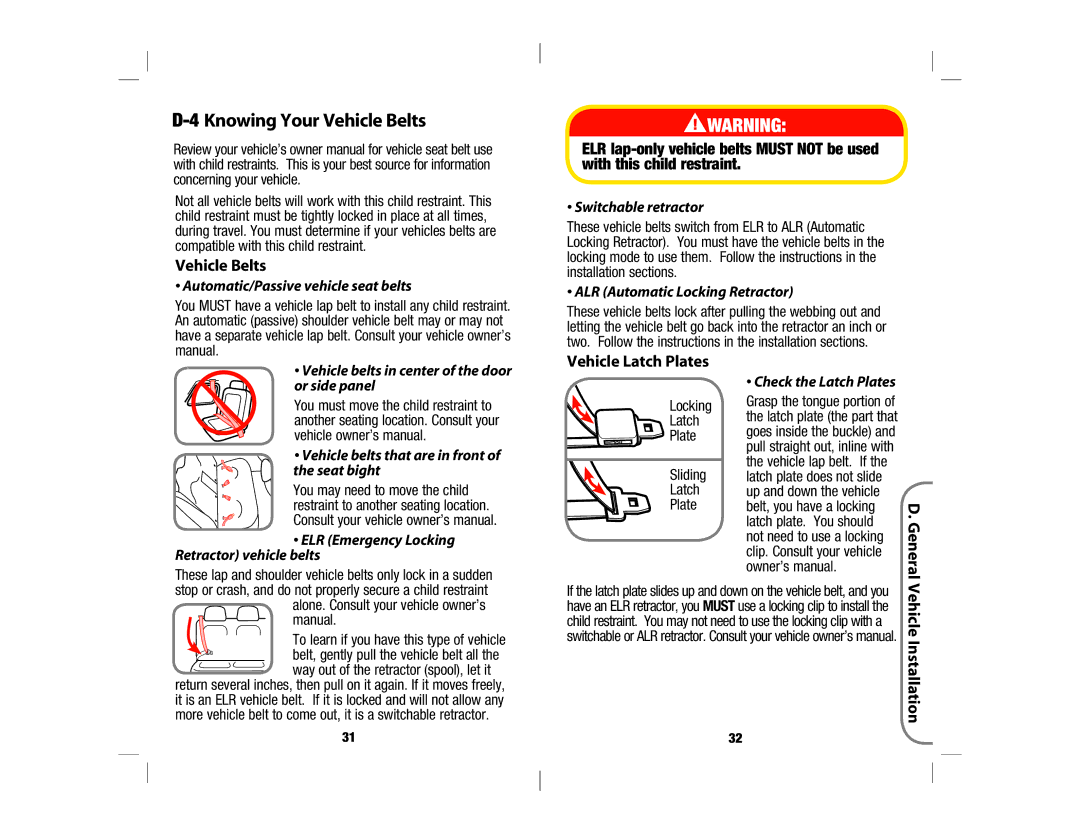4358-5721 specifications
The Safety 1st 4358-5721 is a highly regarded child safety seat designed to ensure the utmost protection and comfort for your little one during travels. This model has carved a niche in the market due to its impressive features and innovative technologies that prioritize child safety and convenience for parents.One of the standout features of the Safety 1st 4358-5721 is its multi-stage design. This seat is crafted to provide a secure environment from infancy through childhood. It offers a rear-facing option for younger children, ensuring that the most vulnerable passengers travel in the safest position. As your child grows, the seat can be converted to a forward-facing mode, accommodating various weight ranges and enhancing longevity.
The installation process of this car seat is simplified with the EasyInstall technology. The seat is equipped with a simple LATCH (Lower Anchors and Tethers for Children) system, which allows for quick and secure installation, reducing the likelihood of user error and enhancing safety. This feature is particularly beneficial for busy parents who appreciate ease of use without compromising safety.
Safety features are paramount in the Safety 1st 4358-5721 design. It includes a five-point harness system that secures your child firmly while allowing for easy adjustments as they grow. Furthermore, the seat is designed with side-impact protection, which is crucial in the event of a collision, minimizing the risk to your child's head and torso.
Comfort is also a key focus of this child safety seat. The Safety 1st 4358-5721 is equipped with plush padding and a removable, machine-washable cover, making it easy to maintain cleanliness and hygiene. The seat is designed to provide ample support for long journeys, catering to the diverse needs of growing children.
In terms of safety certifications, the Safety 1st 4358-5721 adheres to rigorous safety standards set by the American National Standards Institute (ANSI) and exceeds federal crash test requirements. This level of assurance offers peace of mind to parents seeking reliable options for their children’s safety.
In conclusion, the Safety 1st 4358-5721 represents a blend of security, comfort, and convenience. With its multi-stage functionality, easy installation, robust safety features, and comfort-enhancing design, this car seat is a practical choice for families seeking to ensure safe travel for their children. It stands as a testament to Safety 1st’s commitment to innovative and reliable child safety solutions.

